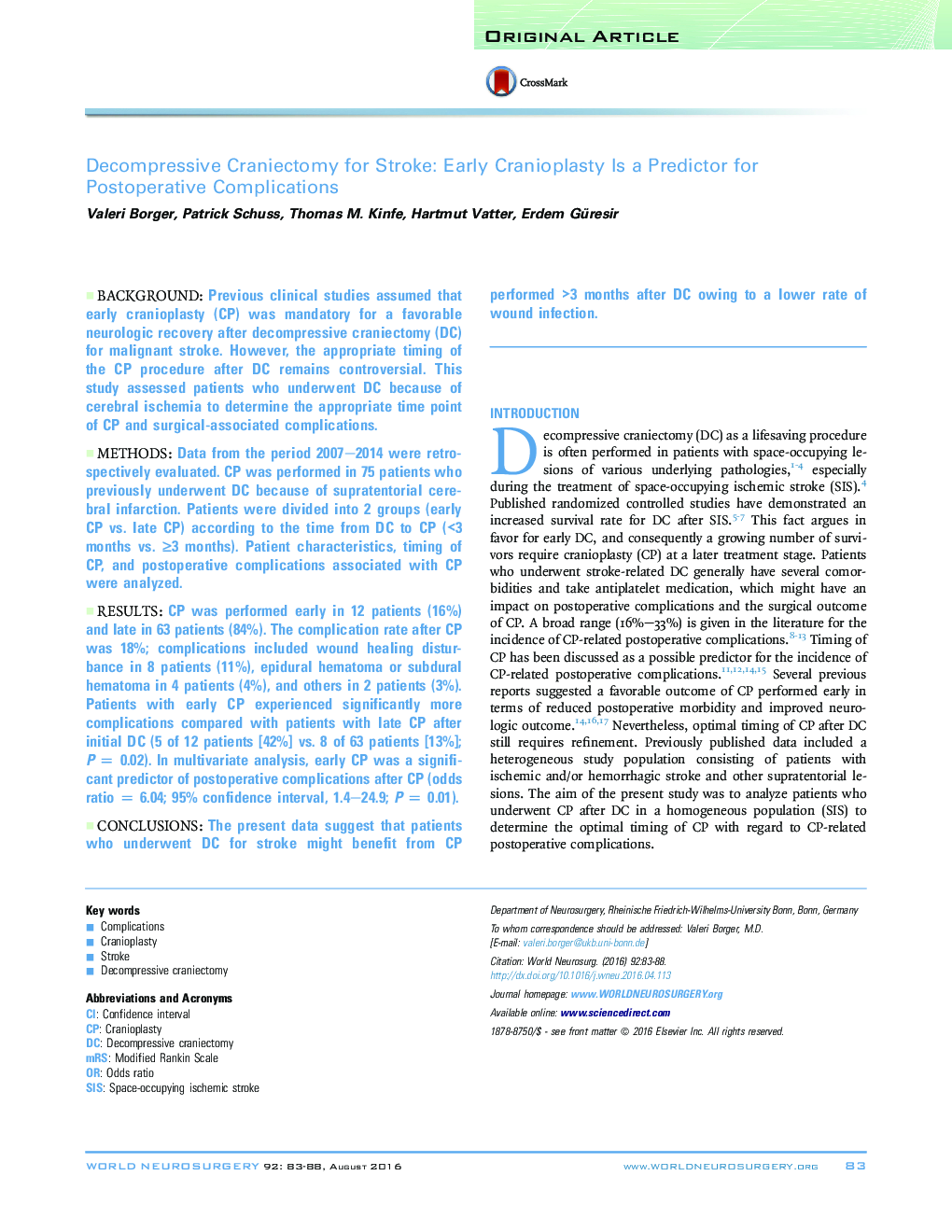| Article ID | Journal | Published Year | Pages | File Type |
|---|---|---|---|---|
| 3094688 | World Neurosurgery | 2016 | 6 Pages |
BackgroundPrevious clinical studies assumed that early cranioplasty (CP) was mandatory for a favorable neurologic recovery after decompressive craniectomy (DC) for malignant stroke. However, the appropriate timing of the CP procedure after DC remains controversial. This study assessed patients who underwent DC because of cerebral ischemia to determine the appropriate time point of CP and surgical-associated complications.MethodsData from the period 2007–2014 were retrospectively evaluated. CP was performed in 75 patients who previously underwent DC because of supratentorial cerebral infarction. Patients were divided into 2 groups (early CP vs. late CP) according to the time from DC to CP (<3 months vs. ≥3 months). Patient characteristics, timing of CP, and postoperative complications associated with CP were analyzed.ResultsCP was performed early in 12 patients (16%) and late in 63 patients (84%). The complication rate after CP was 18%; complications included wound healing disturbance in 8 patients (11%), epidural hematoma or subdural hematoma in 4 patients (4%), and others in 2 patients (3%). Patients with early CP experienced significantly more complications compared with patients with late CP after initial DC (5 of 12 patients [42%] vs. 8 of 63 patients [13%]; P = 0.02). In multivariate analysis, early CP was a significant predictor of postoperative complications after CP (odds ratio = 6.04; 95% confidence interval, 1.4–24.9; P = 0.01).ConclusionsThe present data suggest that patients who underwent DC for stroke might benefit from CP performed >3 months after DC owing to a lower rate of wound infection.
